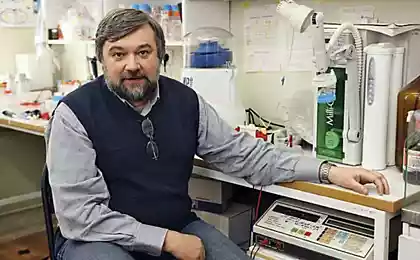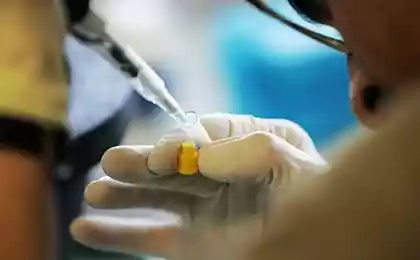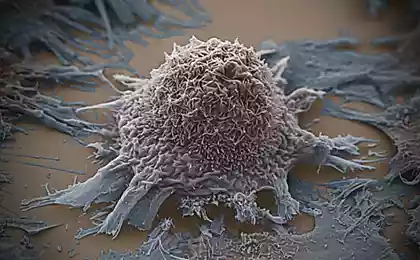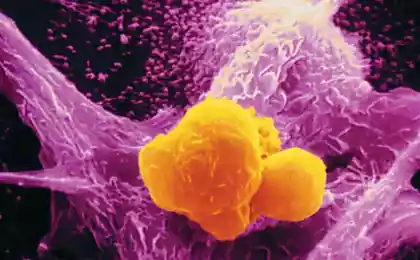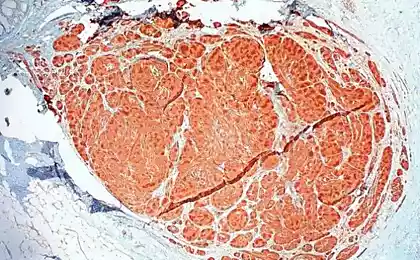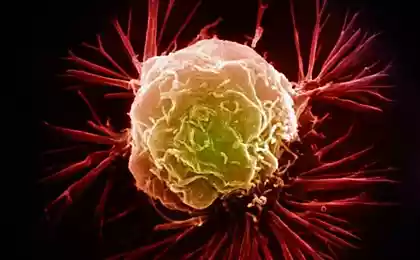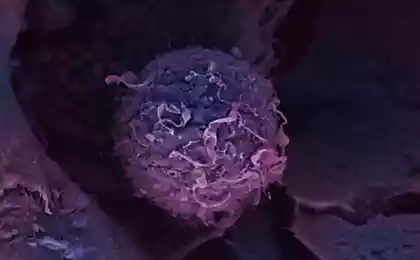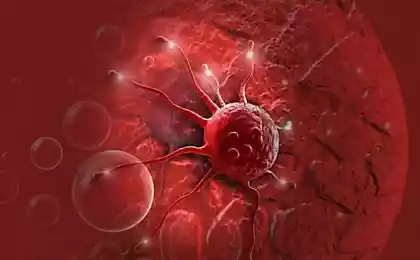234
Aspirin and wine kill cancer in the bud
The reason for oncology may be an increase in the ploidity of cells - the appearance of excessive sets of chromosomes in them. Normally, human cells (except sex) are diploid, that is, they have 2 sets of chromosomes that they got from their father and mother. If a third cell is added, the fourth cell is tetraploid. Polyploidization is not quite a rare phenomenon, but it is normally tolerated only by plants, in animals the increase in the number of chromosomes and, naturally, the appearance of new working copies of genes leads to serious trouble.

The appearance of a huge number of tetraploid cells is inherent in the initial stages of cancer of the esophagus, stomach, breast, cervix, prostate, etc. Normally, tetraploid cells die on their own — or if they survive, they are killed by the immune system, but sometimes neither happens. Polyploidization occurs in cells that are ready to become cancerous, and this happens when they turn off tumor suppressors that prevent cancer rebirth.
Killing tetraploid cells in time is likely to prevent the development of cancer. But how do you do that? To do this, it is necessary to find a tool that would cope with tetraploid cells without touching their normal neighbors. DNA-damaging agents tetraploids are generally not afraid, and compounds that prevent cell division, affect normal cells too.
Guido Kroemer found two substances that acted on tetraploid cells without touching ordinary diploid cells.
Read also:Tea with milk is effective against cancer

These substances were more commonplace - aspirin and resveratrol. Resveratrol is often discussed as a life-prolonging agent, and red wine is commonly referred to in connection with resveratrol, where it is actually abundant, but it is also found in other foods. Both resveratrol and aspirin seem to slow the development of cancer, but what exactly and how they do, researchers continue to inquire.
Guido Kremer and his colleagues reported that if mice that were prone to cancer and had a huge number of tetraploid cells in their gut were given aspirin and resveratrol, the number of bad cells was reduced. Consequently, the likelihood of developing a malignant tumor also decreased.
Source: /users/413

The appearance of a huge number of tetraploid cells is inherent in the initial stages of cancer of the esophagus, stomach, breast, cervix, prostate, etc. Normally, tetraploid cells die on their own — or if they survive, they are killed by the immune system, but sometimes neither happens. Polyploidization occurs in cells that are ready to become cancerous, and this happens when they turn off tumor suppressors that prevent cancer rebirth.
Killing tetraploid cells in time is likely to prevent the development of cancer. But how do you do that? To do this, it is necessary to find a tool that would cope with tetraploid cells without touching their normal neighbors. DNA-damaging agents tetraploids are generally not afraid, and compounds that prevent cell division, affect normal cells too.
Guido Kroemer found two substances that acted on tetraploid cells without touching ordinary diploid cells.
Read also:Tea with milk is effective against cancer

These substances were more commonplace - aspirin and resveratrol. Resveratrol is often discussed as a life-prolonging agent, and red wine is commonly referred to in connection with resveratrol, where it is actually abundant, but it is also found in other foods. Both resveratrol and aspirin seem to slow the development of cancer, but what exactly and how they do, researchers continue to inquire.
Guido Kremer and his colleagues reported that if mice that were prone to cancer and had a huge number of tetraploid cells in their gut were given aspirin and resveratrol, the number of bad cells was reduced. Consequently, the likelihood of developing a malignant tumor also decreased.
Source: /users/413
Chinese engineer figured out how to deliver water in the North-Eastern part of the country
The Best Green Amusement Parks

